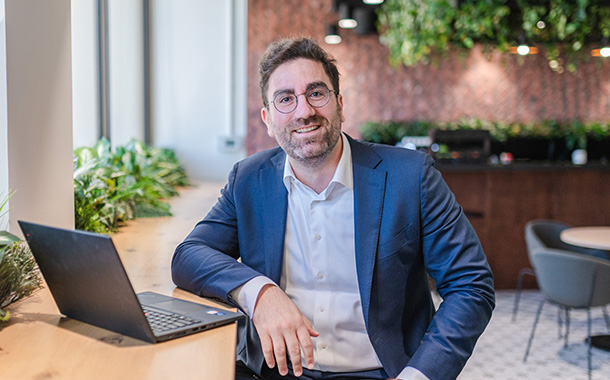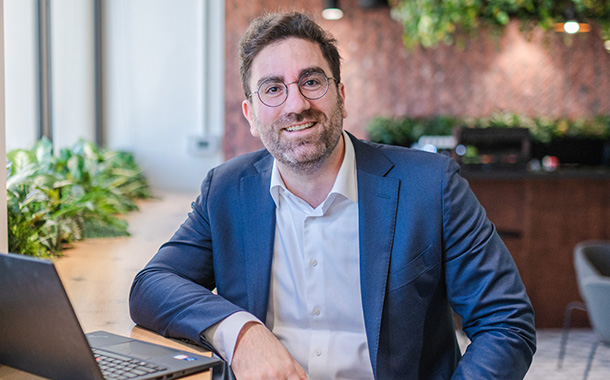Oliver Wyman, a global management consulting firm and a business of Marsh McLennan recently released insights into the rapidly evolving landscape of artificial intelligence (AI), revealing significant opportunities that AI presents, while also highlighting growing concerns surrounding its adoption, from the pace of development to existential threats from the technology. The findings, drawn from the Oliver Wyman Forum report “How Generative AI is Transforming Business and Society” and related surveys, paint a picture of a world both excited and cautious about the future of AI.
Speaking ahead of the Global AI Summit hosted by the Saudi Data & AI Authority (SDAIA) in Riyadh on 10-12 September, Nick Studer, President and CEO for the Oliver Wyman Group, said, “While the transformative potential of AI is immense, it is also clear that societies around the world are looking to their governments for leadership in areas including education and workforce development to fully harness these opportunities in a safe and ethical manner. With 39% of people across 20 countries advocating for government-driven AI initiatives, it’s crucial that we prepare our workforce for the changes ahead, while ensuring AI is developed and deployed responsibly.”
However, alongside this optimism there are some doubts among industry leaders about the pace of AI adoption. The recent Oliver Wyman Forum survey “The New Growth Agenda: How CEOs are Navigating Emerging Shifts in Geopolitics, Trade, Technology, and People” reveals that 41% of CEOs from NYSE-listed companies are concerned about moving too slowly on AI, underscoring the critical importance of timely innovation in this space. Moreover, 96% of CEOs view AI as an opportunity, not a risk, according to the same survey. This high level of optimism among CEOs further emphasizes the potential that AI holds for businesses and the global economy.
Meanwhile, generative AI is particularly stirring the imagination of consumers worldwide. According to the Oliver Wyman Forum AI report, 28% of global respondents believe that generative AI has the capacity to capture the depth of human emotion, pointing to its potential in areas such as entertainment and customer service. Despite this enthusiasm, the risks associated with AI are not lost on those at the forefront of its development. The same report reveals that 50% of AI researchers believe there’s a greater than 10% chance that AI could lead to human extinction – a sobering statistic that highlights the need for cautious and responsible AI development.
AI in the GCC
- This is certainly not deterring workers in the Kingdom of Saudi Arabia from embracing generative AI. Indeed, according to the Oliver Wyman Forum AI report, some 68% of workers in the Kingdom use generative AI weekly compared to only 55% globally. And 93% of Saudis said generative AI is an essential tool at work, compared to 95% in the Middle East and 79% globally.
- The enthusiasm of individuals for AI in Saudi Arabia is matched by the government, which – along with other authorities in GCC countries including the UAE – is taking a leadership role in AI, placing the region in a prime position to leverage the technology for economic and societal gain.
- Saudi Arabia’s ambitious AI investment strategy further highlights the global movement behind AI development. According to The New York Times, the government of Saudi Arabia plans to invest $40 billion in AI, reflecting the country’s commitment to becoming a global AI leader.
- The New York Times report added that representatives of Saudi Arabia’s Public Investment Fund (PIF) discussed a potential partnership with one of Silicon Valley’s leading venture capital firms, and other financiers. Such a move would align with the United States’s “Chip 4 Alliance” initiative, a strategic partnership with Japan, South Korea, and Taiwan, which collectively control a significant share of the global semiconductor market, to build a sustainable semiconductor supply chain critical to AI technologies.
“The Middle East, and particularly the GCC, appears to be taking a confident stance in its embrace of AI, with governments committed to investing in, and deploying the technology,” said Jad Haddad, Global Head of Oliver Wyman Quotient, the firm’s AI offering. “At the same time, young and growing populations in the region are keen to use AI-based services at work and at home, spurring further investment and encouraging governments to persevere with their proactive stances.”
























